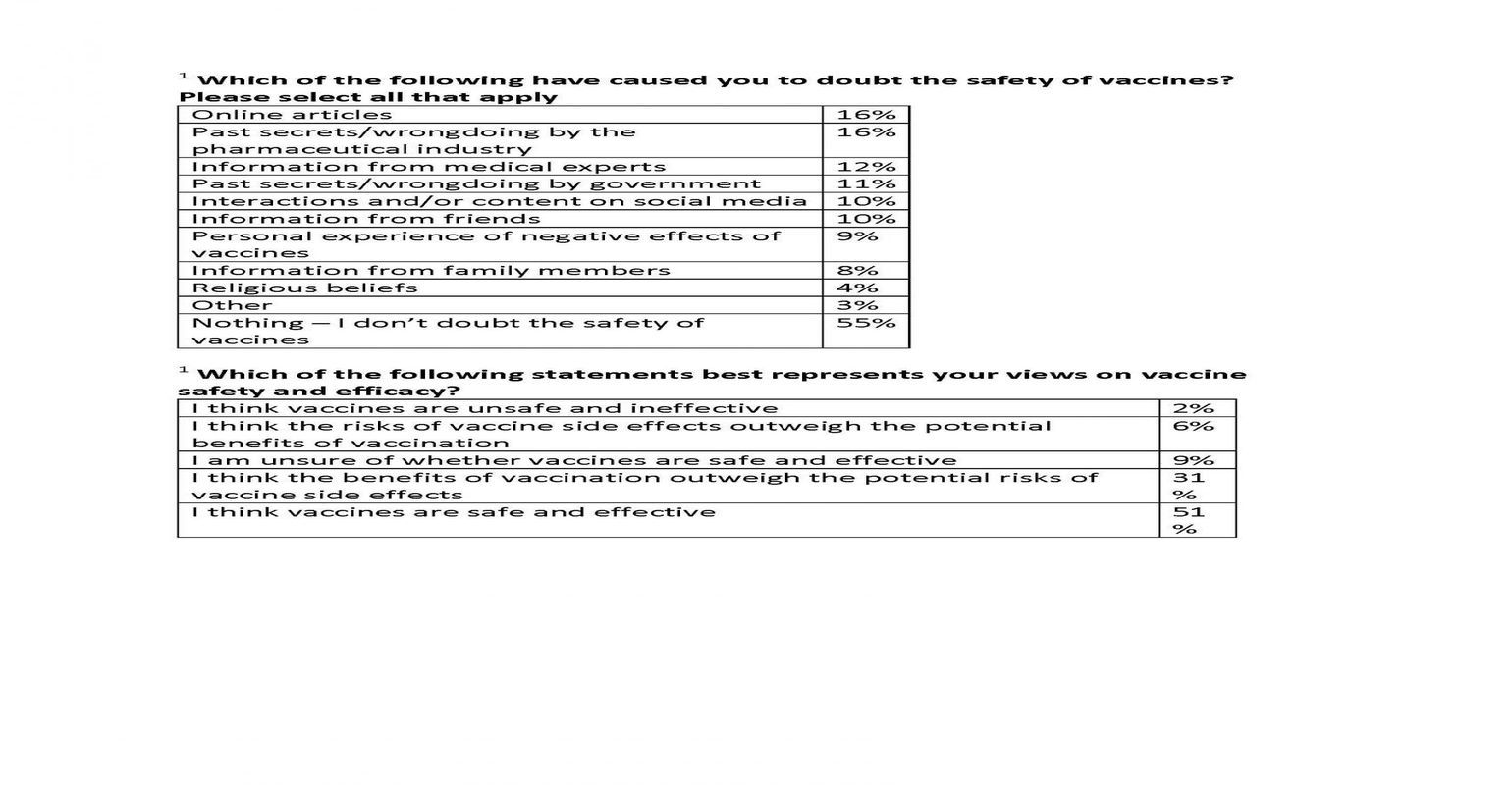Antivaxers are common enough to cause a statistically measurable negative impact on our vaccination levels, resulting in the re-emergence of clusters of infection for diseases like measles.
That’s problematic.
That’s problematic.
With respect, I said "common enough to have a particular effect". Do you disagree that this effect is happening? If not, then we are not in disagreement.
Maybe you are assuming that "common enough to have this impact" also means "very common in general"? Because I didn't say that.

A Harris poll last June found that 45% of Americans had some degree of "doubt" about vaccines. It's not necessarily full-fledged anti-vaxxery, but it's still a distressingly large amount of pseudo-skepticism nonetheless.

45 Percent of Surveyed American Adults Doubt Vaccine Safety
www.infectioncontroltoday.com
The survey also asked Americans to choose a statement that best represented their feelings about vaccine safety and efficacy. While the vast majority (82 percent) chose in favor of vaccines, 8 percent selected responses expressing serious doubt. An additional 9 percent said they were unsure.
Yes, we haven't really had to try hard before to make one. Sorry I miststated that. I believe a correct revision of my statement would be: "We have never made a safe, successful vaccine for a human-effecting coronavirus. We haven't really had to try that hard before."Stop right there. This is factually incorrect. The veterinary world has vaccines to protect against coronaviruses that infect bovines, felines, and canines.
And, over at Walter Reed Army Institute of Research, they've had successful phase 1 human trials of a vaccine for MERS-CoV last year.
Coronaviruses are not some weirdly invulnerable beast. The fact is that, before SARS and MERS, there was not much call to develop vaccines for coronaviruses that infect humans, as the worst they usually do to us is produce the common cold. And SARS and MERS, which are deadly, largely stopped being a concern before vaccine research could finish.
Simply put, we haven't really tried all that hard.
Maybe the movement has really exploded and I have missed it?
Yes, the exact numbers don't necessarily matter as long as we know the effect it will have on our response to Covid-19. It certainly helps to know how many people won't take a vaccine or don't trust them, but what truly matters is how many people will die if we can't beat the virus.I don't claim to know. I merely say it is enough to have problematic results. The absolute numbers, or even percentage of the population, is less an issue than their results on public health.
